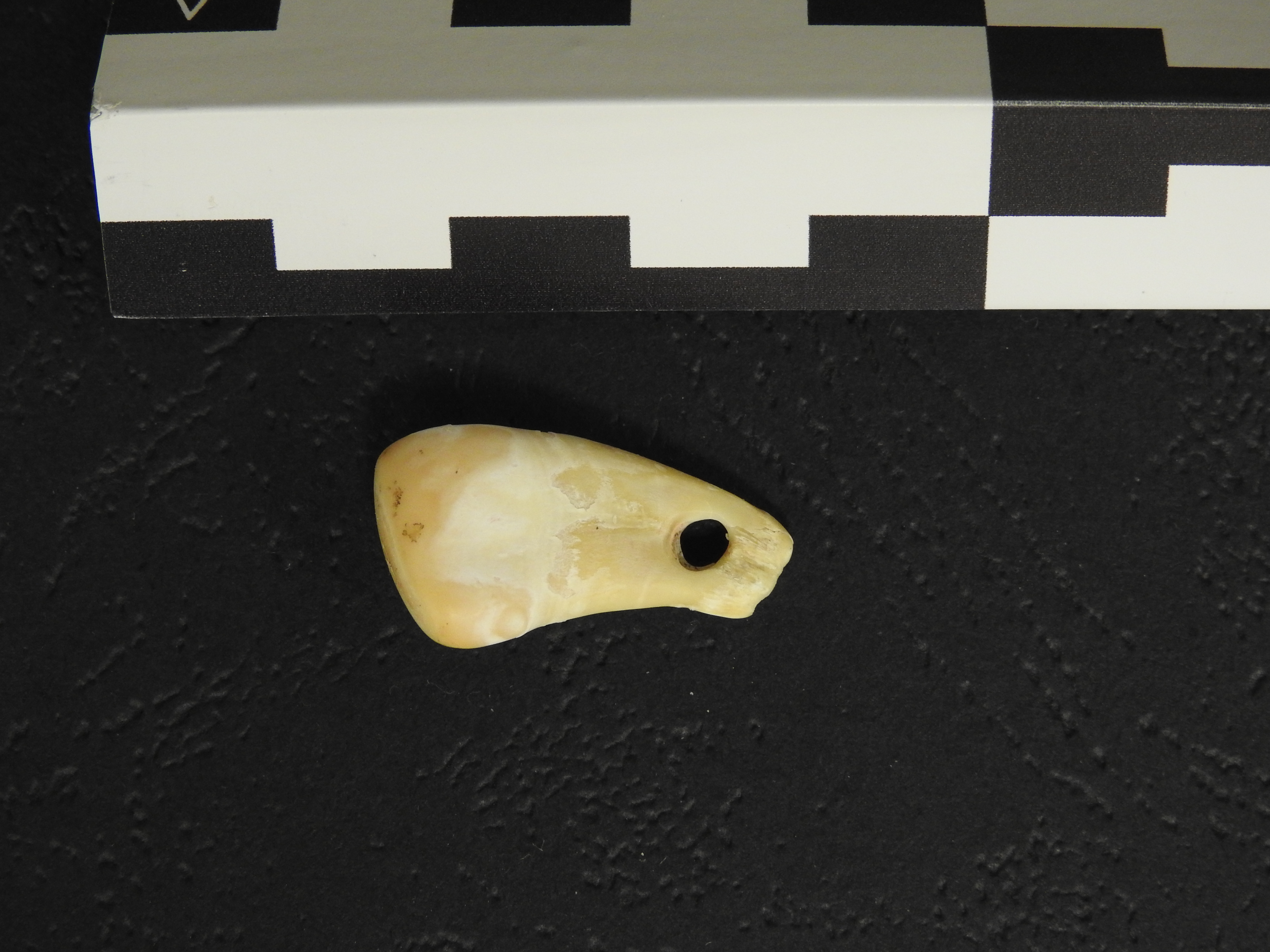Scientists use 'pioneering' new technique to extract DNA from ancient pendant

A free daily email with the biggest news stories of the day – and the best features from TheWeek.com
You are now subscribed
Your newsletter sign-up was successful
Scientists have discovered a way to extract DNA from an ancient pendant in a noninvasive fashion, allowing them to reveal the identity of the artifact's original owner.

"I find these objects made in the deep past extremely fascinating since they allow us to open a small window to travel back and have a glance into these people's lives," remarked Elena Essel, the lead author of the study, which was published in the journal Nature.
The pendant was made out of a pierced deer tooth and was discovered in the Denisova Cave in Siberia. Researchers believe the artifact is between 19,000 and 25,000 years old, dating back to the Stone Age. It reportedly belonged to a woman who was part of a group called the Ancient North Eurasians, but it is unclear whether the woman wore the pendant or just made it, CNN notes. "It's almost like you open a time travel machine," Essel said of the process in a news release. "With each sample we are able to learn a bit more and make more inferences about how these people lived."
The Week
Escape your echo chamber. Get the facts behind the news, plus analysis from multiple perspectives.

Sign up for The Week's Free Newsletters
From our morning news briefing to a weekly Good News Newsletter, get the best of The Week delivered directly to your inbox.
From our morning news briefing to a weekly Good News Newsletter, get the best of The Week delivered directly to your inbox.
Previously, in order to extract the DNA from an object like this, scientists would have had to drill into the pendant to extract bone powder. This "pioneering" new method, however, avoids any direct damage, CNN says. Scientists submerged the artifact in a sodium phosphate buffer solution and slowly increased the temperature, which then allowed for the DNA to be released into the solution. Essel described the process as a "laboratory washing machine without the movement," wherein it was "the wash water that was exciting for us," she told CNN.
"With this new technique, we can finally start talking about that and investigating the roles of individuals according to their biological sex or their genetic identity and family relationships," Marie Soressi, who also worked on the study, told New Scientist.
A free daily email with the biggest news stories of the day – and the best features from TheWeek.com
Devika Rao has worked as a staff writer at The Week since 2022, covering science, the environment, climate and business. She previously worked as a policy associate for a nonprofit organization advocating for environmental action from a business perspective.
-
 One great cookbook: Joshua McFadden’s ‘Six Seasons of Pasta’
One great cookbook: Joshua McFadden’s ‘Six Seasons of Pasta’the week recommends The pasta you know and love. But ever so much better.
-
 Scientists are worried about amoebas
Scientists are worried about amoebasUnder the radar Small and very mighty
-
 Buddhist monks’ US walk for peace
Buddhist monks’ US walk for peaceUnder the Radar Crowds have turned out on the roads from California to Washington and ‘millions are finding hope in their journey’
-
 Blue Origin launches Mars probes in NASA debut
Blue Origin launches Mars probes in NASA debutSpeed Read The New Glenn rocket is carrying small twin spacecraft toward Mars as part of NASA’s Escapade mission
-
 Dinosaurs were thriving before asteroid, study finds
Dinosaurs were thriving before asteroid, study findsSpeed Read The dinosaurs would not have gone extinct if not for the asteroid
-
 SpaceX breaks Starship losing streak in 10th test
SpaceX breaks Starship losing streak in 10th testspeed read The Starship rocket's test flight was largely successful, deploying eight dummy satellites during its hour in space
-
 Rabbits with 'horns' sighted across Colorado
Rabbits with 'horns' sighted across Coloradospeed read These creatures are infected with the 'mostly harmless' Shope papilloma virus
-
 Lithium shows promise in Alzheimer's study
Lithium shows promise in Alzheimer's studySpeed Read Potential new treatments could use small amounts of the common metal
-
 Scientists discover cause of massive sea star die-off
Scientists discover cause of massive sea star die-offSpeed Read A bacteria related to cholera has been found responsible for the deaths of more than 5 billion sea stars
-
 'Thriving' ecosystem found 30,000 feet undersea
'Thriving' ecosystem found 30,000 feet underseaSpeed Read Researchers discovered communities of creatures living in frigid, pitch-black waters under high pressure
-
 New York plans first nuclear plant in 36 years
New York plans first nuclear plant in 36 yearsSpeed Read The plant, to be constructed somewhere in upstate New York, will produce enough energy to power a million homes
